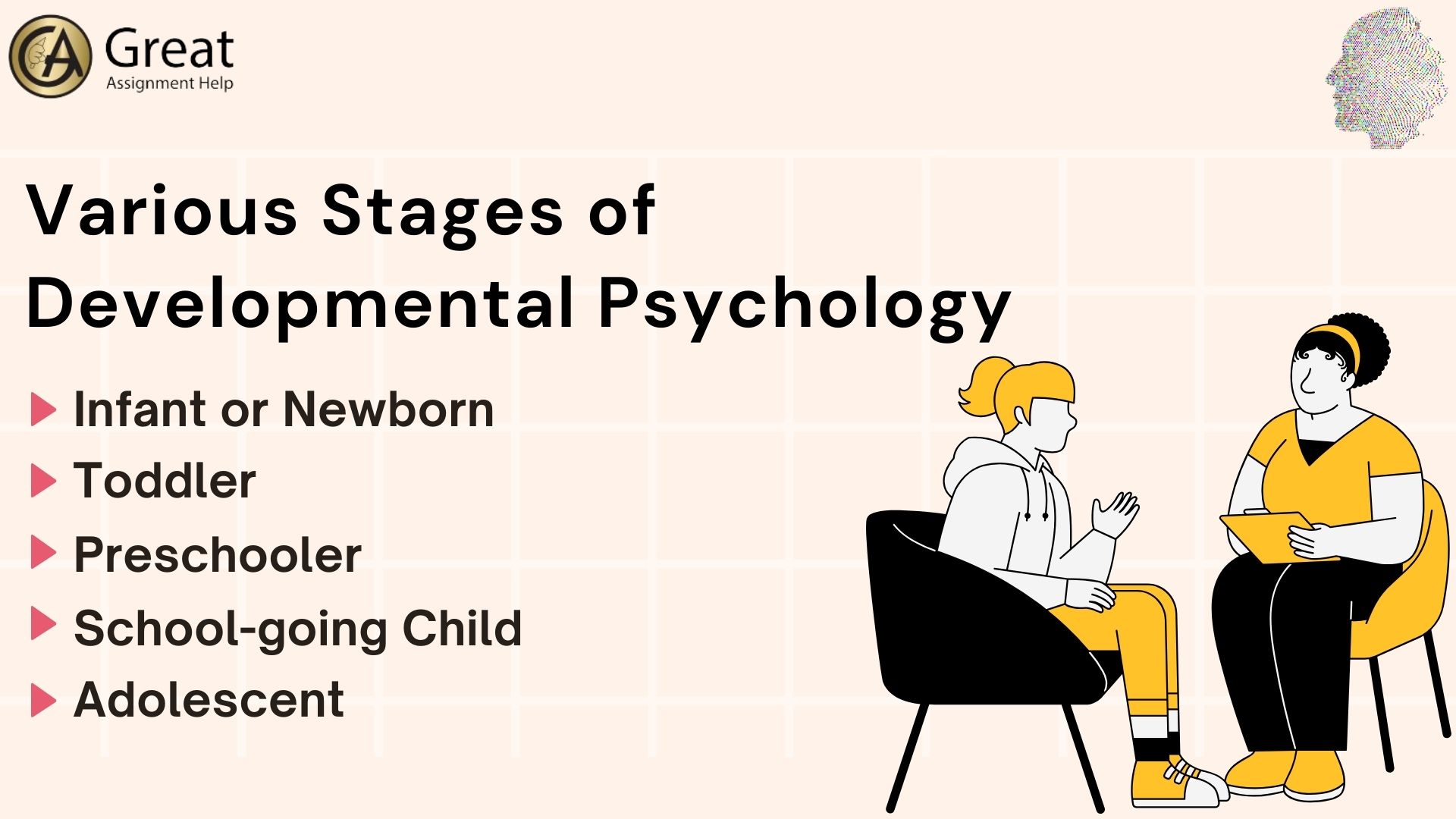This article has been reviewed and updated with current information, new examples, and the latest academic requirements for 2025
Developmental psychology is a branch of psychology that focuses on mind and behavior. It specifically explores how humans develop throughout their lives. In the field of developmental psychology, several research studies and discussions are being carried out. Particularly, in recent times, to provide a broader aspect of human development across the lifetime, the field has included positive psychology theories. By understanding positive psychology, you can improve child education and human development. Moreover, studying developmental psychology will also help you get an idea about how human behavior can be applied in real-life situations. If you wish to learn how humans grow and change in their bodies, minds, relationships, and emotions, then read this blog. Here, we have shared the different aspects of developmental psychology, including its origins, stages, theories, and more.
An Overview of Developmental Psychology
What is developmental psychology? Developmental psychology is the study of how humans change and grow over time. It typically studies how people develop physically, mentally, emotionally, and socially at different stages of life. In addition to childhood and adolescence, this field also explores adulthood and old age to understand the entire human lifespan. If you learn developmental psychology, you will get a clear understanding of all aspects of human growth, including physical changes, emotional development, social skills, and cognitive abilities.
The Origin of Developmental Psychology
Developmental psychology didn’t exist until the Industrial Revolution. At that time, there was a growing need for educated workers. As a result, childhood was viewed as a unique stage of life, and the study of human development also started to take shape. Here, let us look at how developmental psychology originated
- The study of human development began in the Western world. This is where the idea of childhood as we know it today first originated.
- Charles Darwin is believed to have done one of the first systematic studies in developmental psychology. He observed his son’s development and published an article about it in 1877.
- In 1882, Wilhelm Preyer’s book “The Mind of the Child” marked the start of developmental psychology as a distinct field.
- Later, during the 1900s, influential thinkers like John Bowlby, Lev Vygotsky, and Jean Piaget developed important theories about human development that still impact research today.
Various Stages of Developmental Psychology

The developmental psychology is classified into five stages. They are
1. Infant or Newborn
Infancy is the first stage of human development. During this stage, babies will learn to interact with others and respond to their environment. Especially at this stage, parents should track their children’s progress and how they connect. If a baby fails to respond to voice, then it might indicate a serious issue that needs attention.
2. Toddler
A toddler is a child between one and three years old. This is an important stage in their growth and development. At this age, children will try to learn about the world around them. Also, they will work on mastering important skills like walking, talking, eating, and understanding and learning about the things they see.
3. Preschooler
During this stage, children will experience rapid growth and change. They will start to explore the world outside their comfort zone. Moreover, this is the ideal time for kids to get support from their parents. If they get proper care from parents, they will try new things, engage in different activities, and develop new skills.
4. School-going Child
School-going children are those between 6 and 12 years of age. In this stage, they will figure out who they are and start making choices and decisions about themselves. Furthermore, they will learn from what they see and experience around them. This stage is important for personal growth, and the lessons they learn during this period will shape who they become.
5. Adolescent
Typically, adolescent age will be categorized into three stages. They are teenagers, early adulthood, and adults. The teenage period (from 12 to 18 years) is significant for growth. During this stage, kids will learn to face challenges and become stronger. Early adulthood (from age 18 to 30 years) is a key phase of life. During this stage, people will become more independent and grow as individuals. Adulthood begins at 30 years of age and continues beyond. During this stage, people will often experience significant mental and physical growth and development.
Important Developmental Psychology Theories
When the field of developmental psychology started to evolve, experts created theories to explain how humans grow and develop. By studying those theories, you can understand the different stages and processes of human development. These are some of the most important developmental psychology theories you must be aware of
Psychosocial Developmental Theory
This theory of development that spans a person’s entire life is proposed by psychologist Erik Erikson. His theory consists of eight stages, each with a unique challenge or “crisis.” Examples of these challenges include trust vs. distrust in infancy. Each stage is associated with a specific age range, and people need to resolve the challenges they face before moving on to the next one. Erikson’s theory was influenced by the famous psychoanalyst Sigmund Freud’s ideas about human development.
Cognitive Developmental Theory
Swiss psychologist Jean Piaget proposed this theory about how children develop intellectually. According to Piaget, children progress through four distinct stages of cognitive development, from birth to age 12. He believed that as children progress through these stages, they will think more logically and scientifically.
Attachment Theory
John Bowlby introduced Attachment Theory. This theory explains that a child’s development depends more on having a caring and dependable caregiver. He said that a strong bond is crucial for a child’s growth and well-being. Moreover, he added that if a child doesn’t form this strong bond, or experiences loss or separation, it can affect their ability to form healthy relationships later in life.
Sociocultural Developmental Theory
This theory, proposed by Lev Vygotsky’s focuses on how society and culture influence a child’s development. He believed that the world around us shapes who we are and how we interact with others. This theory is different from Bowlby’s focus on the importance of family relationships.
Best Therapies for Human Developmental Problems
To determine if you are experiencing developmental issues, consult a psychologist. A trained professional will also evaluate your situation and guide you. Remember, your developmental problem can be treated only if it is properly diagnosed. Here are some best therapies that you can undergo for your developmental issues
Physical therapy: It refers to physical training. For example, if a child is delayed in crawling or if a child experiences any physical issues, a professional will provide this therapy.
Occupational therapy: This therapy will help people develop skills for everyday tasks. It typically focuses on improving fine motor skills, sensory processing, and self-help abilities. Furthermore, this therapy will promote independence and well-being by addressing physical, cognitive, and sensory challenges.
Speech and language therapy: This therapy is all about sound and speech. Many kids struggle to understand and respond to speech sounds. For such kids, this therapy will help to overcome language and sound problems. Also, it will help to reduce developmental delays and improve their communication skills.
Behavioral therapy: It is a type of treatment that helps people change unwanted behaviors by using techniques like reinforcement and exposure. Mainly, it focuses on encouraging positive behaviors and discouraging negative ones. Also, this therapy aims to promote healthier habits and reactions.
Childhood Special Education: Early Childhood Special Education (ECSE) is a type of support for young children with special needs or disabilities. Trained professionals work with them to overcome social, mental, or physical challenges. The goal of ECSE is to support the development and growth of children.
Wrapping Up
By now, you will have gained a better understanding of developmental psychology. If you are a psychology student experiencing challenges in writing your assignments on developmental psychology, call us immediately for support. We are known for offering the best psychology assignment help online at affordable prices. As per your needs, the psychology experts from our team will assist you in accurately completing your developmental psychology assignments on time and enhancing your grades.



